By Bob Colayco
Design by
The 2004 Olympics ended in Athens, Greece many weeks ago. But from the number of young men and women walking around downtown San Francisco the last few days in national team jerseys, one might think some events are still being played out in the United States. It's actually not the Olympics, but the intensity of the international competition is there.
Playing for national pride is a big part of the World Cyber Games, as these Guatemalan players demonstrate.
The grand final of the World Cyber Games 2004 officially kicked off on Wednesday, October 6 in San Francisco, California. For the next few days, more than 600 players from 62 different countries will be competing in nine different computer and video games: StarCraft: Brood War, WarCraft III: The Frozen Throne, Counter-Strike: Condition Zero, Need for Speed Underground, Unreal Tournament 2004, FIFA Soccer 2004, Halo, Project Gotham Racing 2, and Pangya. Each competitor and team earned the right to compete at the finals by winning local and national competitions in their respective countries, ranging from Korea and the United States, to as far away as Uzbekistan, Kuwait, Ecuador, and the Philippines. WCG officials claim that more than a million players participated in qualifying tournaments. The finalists in San Francisco will play for bragging rights, national pride, and more than $400,000 in prize money.
A large stage with video screen was set up in front of City Hall, in advance of the opening ceremony.
This year marks the first year that the finals of the World Cyber Games have been held outside of Korea, where the competition was founded in 2000. The vision of the WCG has always centered on nation vs. nation competition in games, with a trophy awarded to the country whose players earn the most medals at the yearly finals. Each year, the scope of the WCG has grown, in the number of events as well as the number of countries and players represented. In 2001, 37 countries and less than 400 players participated in the finals. Those numbers are roughly doubled at this year's event.
It should come as no surprise that the WCG's founders and organizers hail from Korea. In that country, tournaments and professional players for games such as StarCraft, WarCraft III, and Counter-Strike receive sponsorships and funding from large corporations. These include everyday brand names like Coca-Cola, Panasonic, and Hyundai. Three round-the-clock cable channels are dedicated to video games and professional gaming, according to Hank Jeong, CEO of International Cyber Marketing, the company that put the WCG event together. Aside from cable channels, major network television in Korea carries game-related programming. Even the government of South Korea has gotten into the act, with the Ministry of Culture and Tourism providing sponsorship and support to the WCG. Is it any surprise then, that top professional gamers in Korea are celebrated in much the same way that American sports fans follow their favorite basketball and football players?
Bill Graham Civic Auditorium is set up with big video screens above, for spectators to follow the action.
In bringing the finals out of Korea, the organizers of WCG are looking to take this level of excitement about competitive gaming to a worldwide scale. In fact, an announcement has already been made that Singapore will host the 2005 finals, with future events possibly happening in Europe. Whether or not it will catch on remains to be seen--those who are interested in finding out for themselves can catch the competition live, today through Sunday, October 10th at Bill Graham Civic Auditorium in San Francisco. Tickets are $5 to the public, but freebies can by had by registering and taking a short survey on the WCG web site.
On October 6, the World Cyber Games 2004 in San Francisco kicked off in the Civic Center plaza where a large stage, complete with large video screen, was set up in front of City Hall. With hundreds of spectators looking on (albeit most of them tournament competitors, press, and VIPs), the elaborate two-hour ceremony started at 6PM and lasted two hours into the night.
Chinese performers dance with colorful lengths of cloth twirling about.
The ceremonies began with a series of cultural events, ranging from Chinese dancers twirling colorful skeins of silk, to traditional west African dancers, bouncing to the beat of drums. As night fell upon the city, an Olympic-style procession of flag-bearers marched up to the stage with all 62 nations called out in front of the crowd. Once the flags were properly displayed, a local high school marching band and drill team entertained the crowd, with a martial arts demonstration following them.
San Francisco mayor Gavin Newsom officially opened the games.
The extravagant pomp continued with the singing of the United States national anthem, complete with accompaniment by a military color guard. Legendary San Francisco 49ers quarterback Steve Young then approached the podium and gave a brief speech, generously comparing the upcoming competition with his own heroics in the National Football League. San Francisco mayor Gavin Newsom followed Young with a speech of his own, welcoming the WCG to the city and declaring the games officially open, amidst a shower of sparks from fireworks. The ceremonies closed with the raising of the official WCG 2004 flag, and a declaration of sportsmanship from reigning WCG Halo champion Matthew Leto as player representative, and Dr. Henry Lowood, a Stanford University professor representing the games' referees.
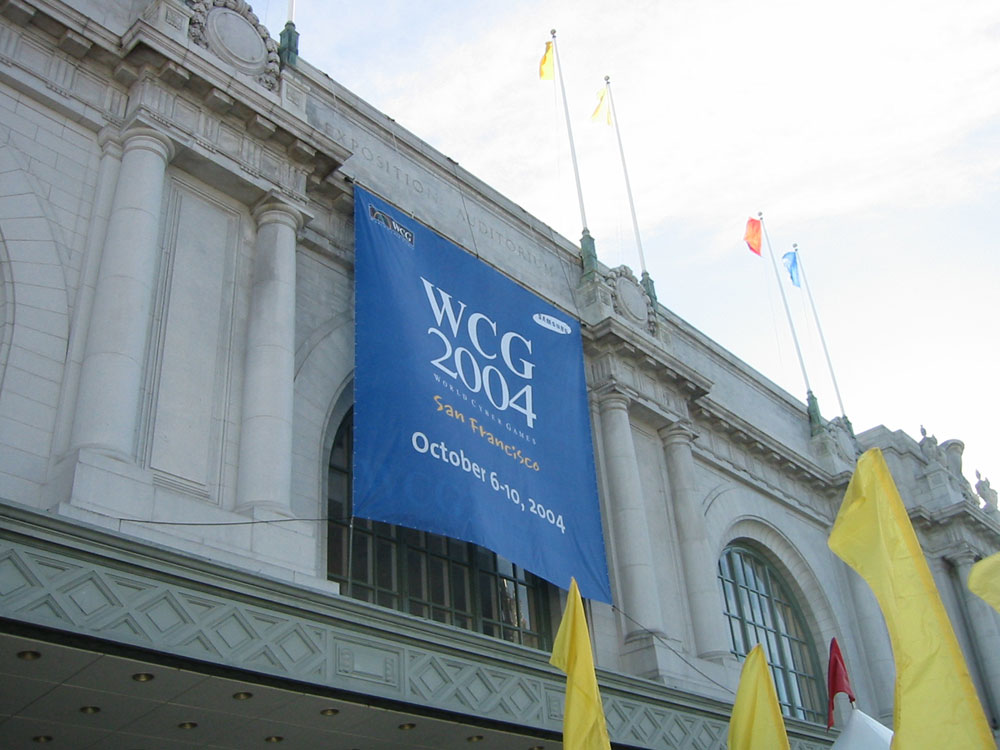 | 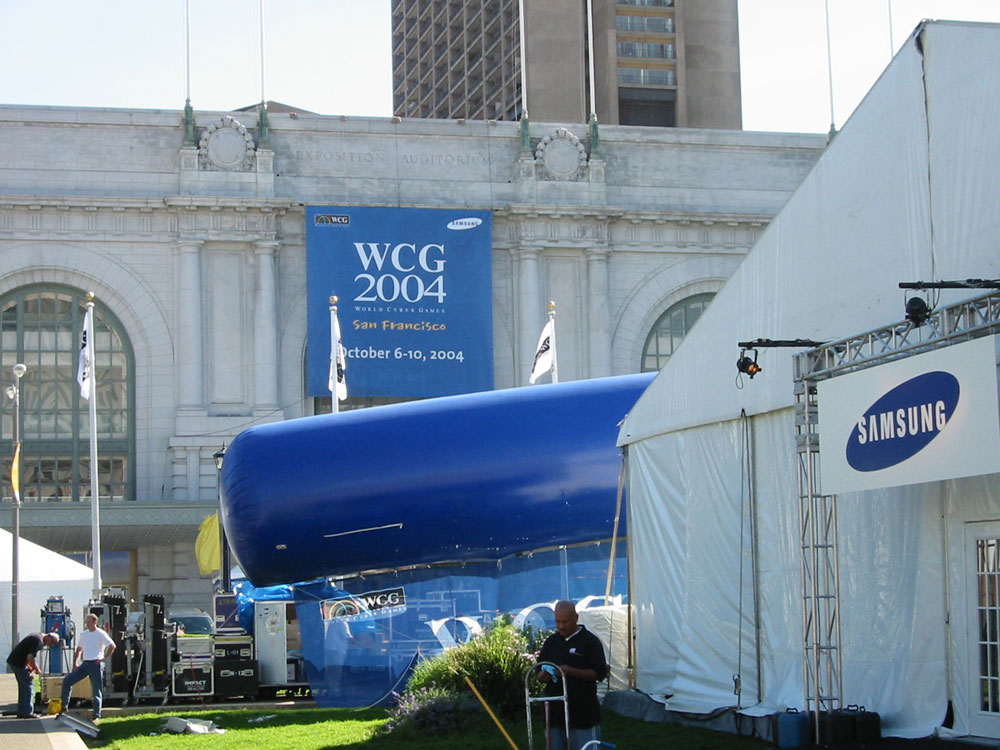 | 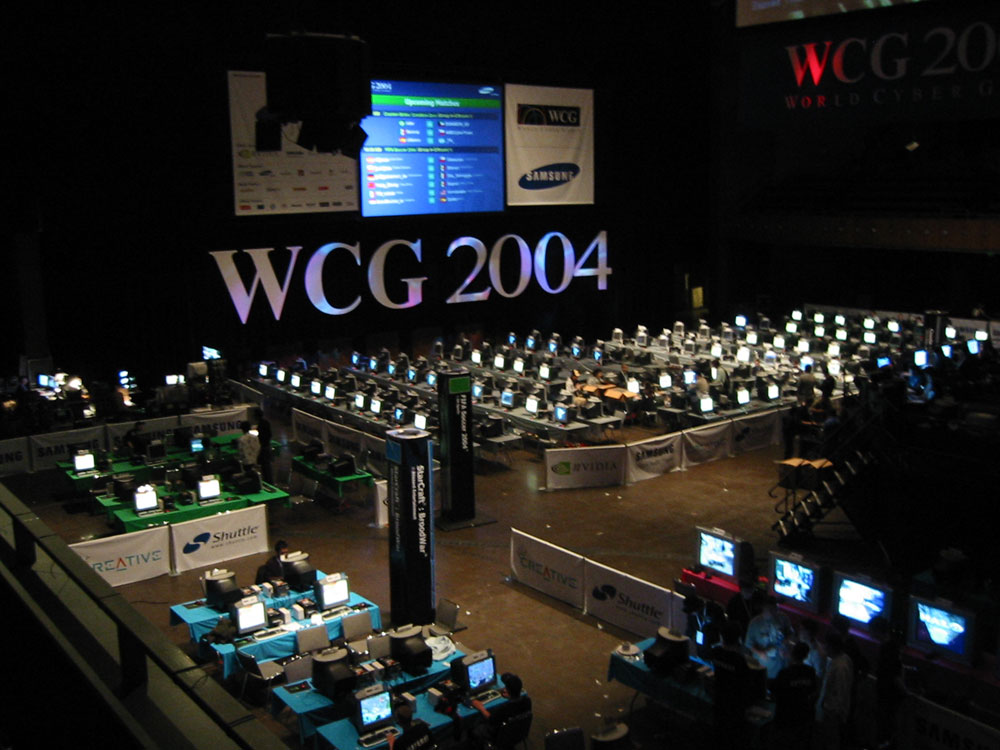 |
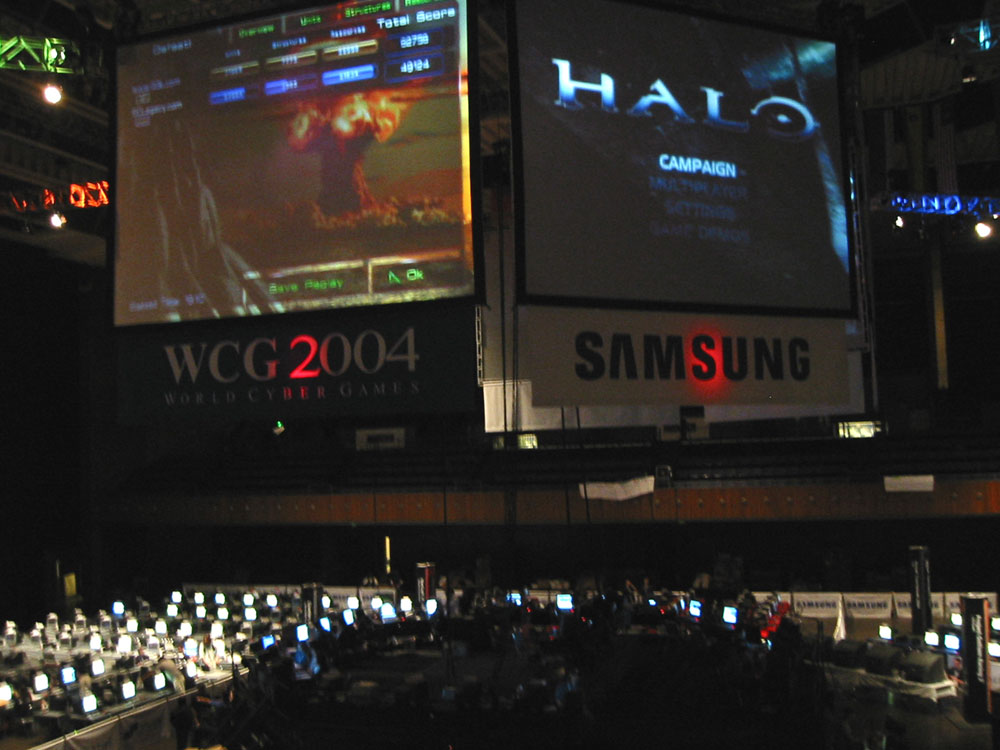 | 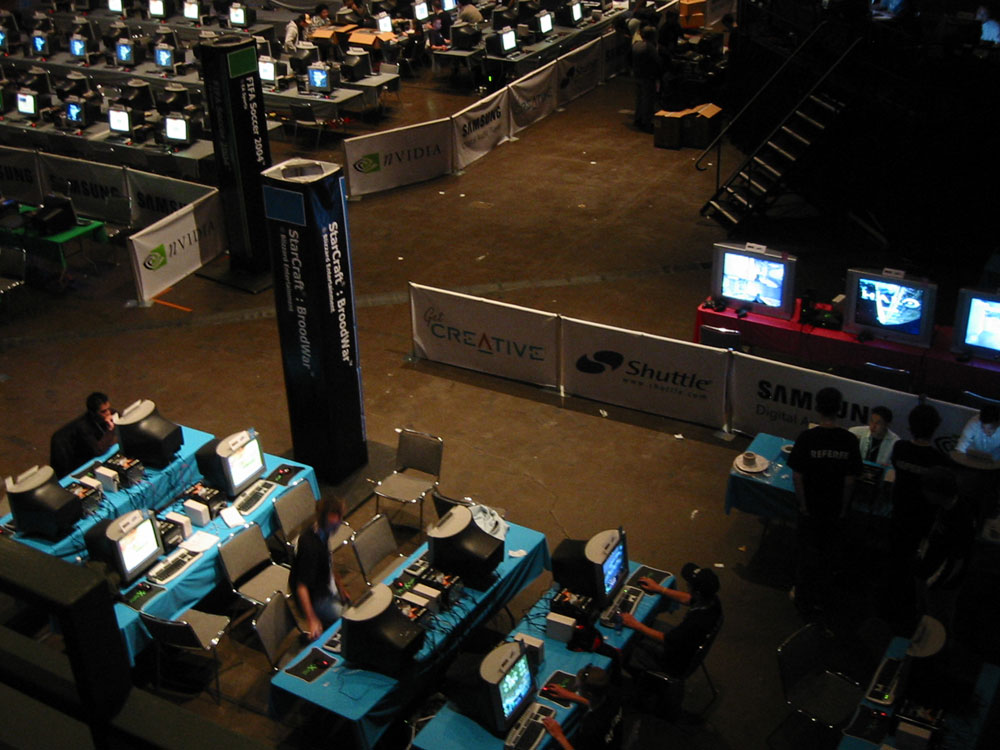 | 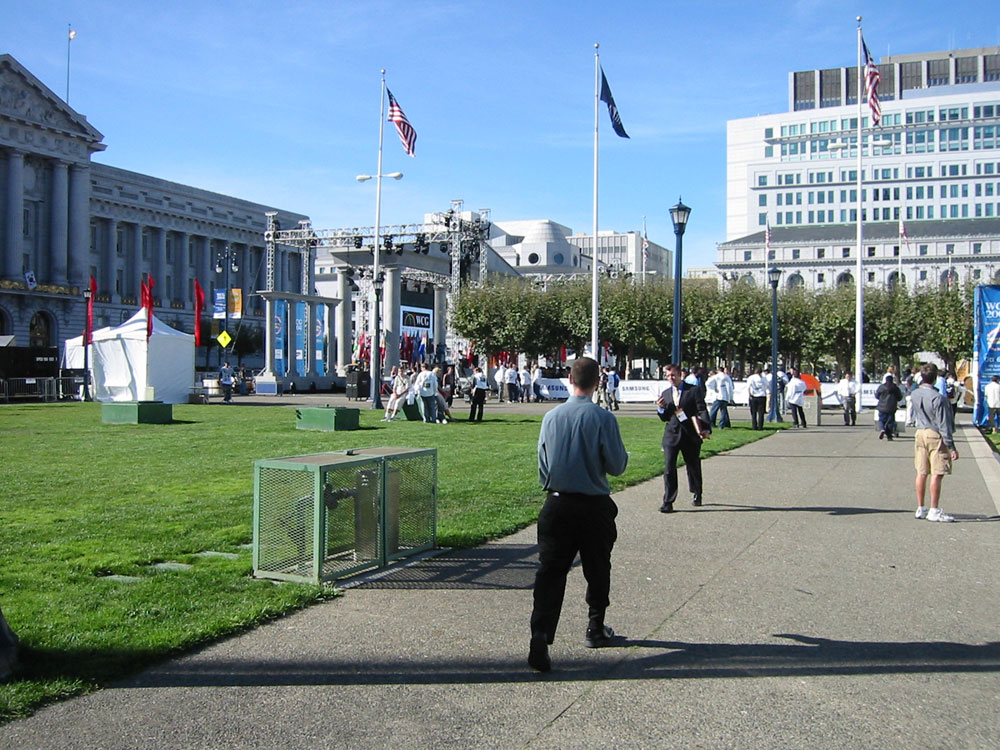 |
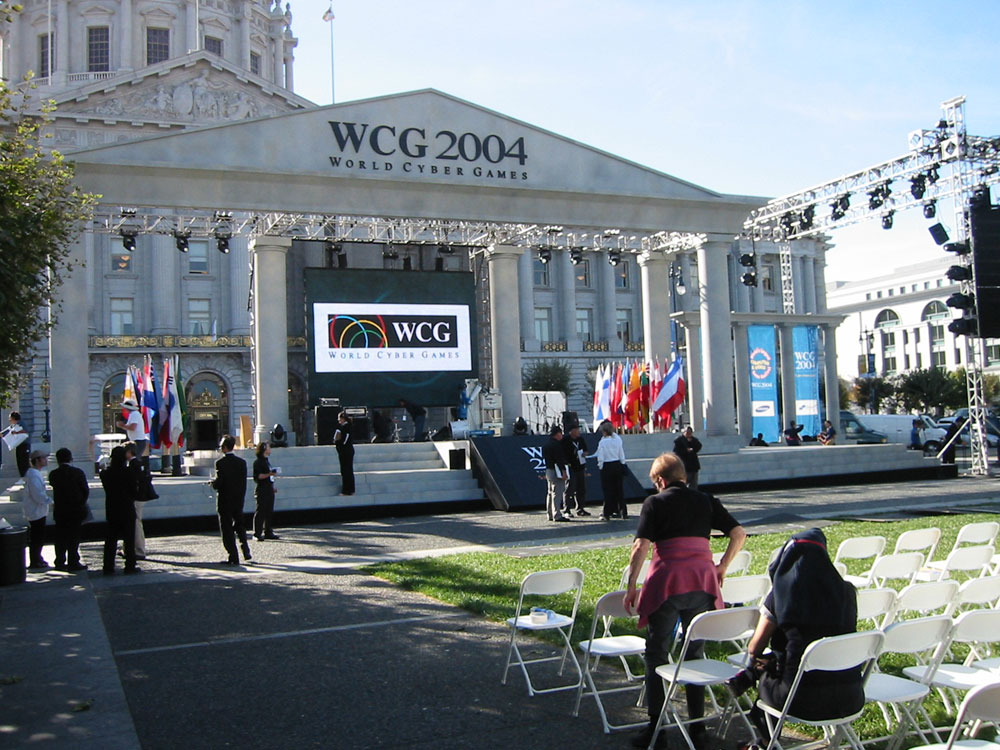 | 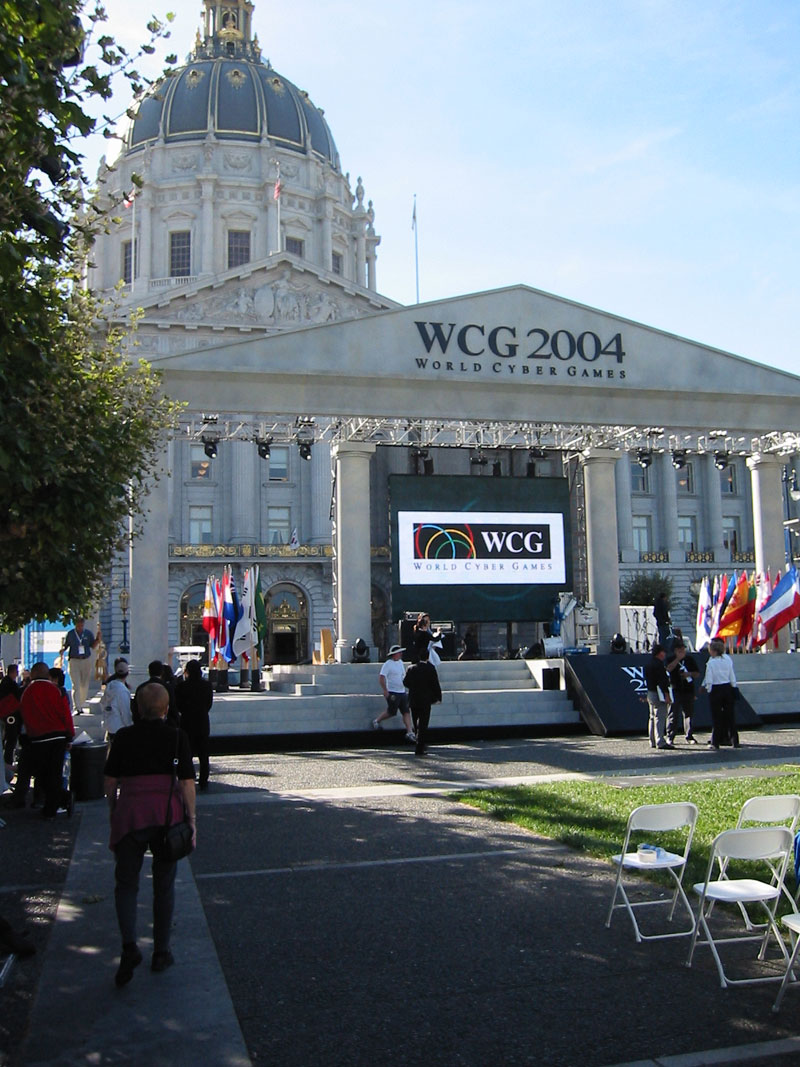 | 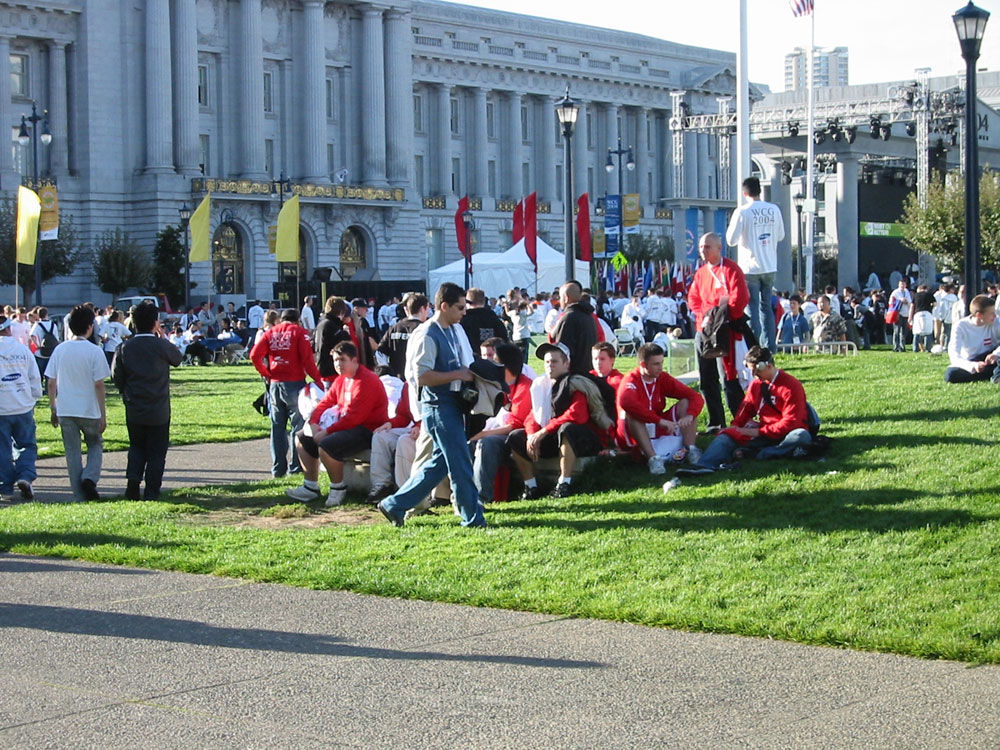 |
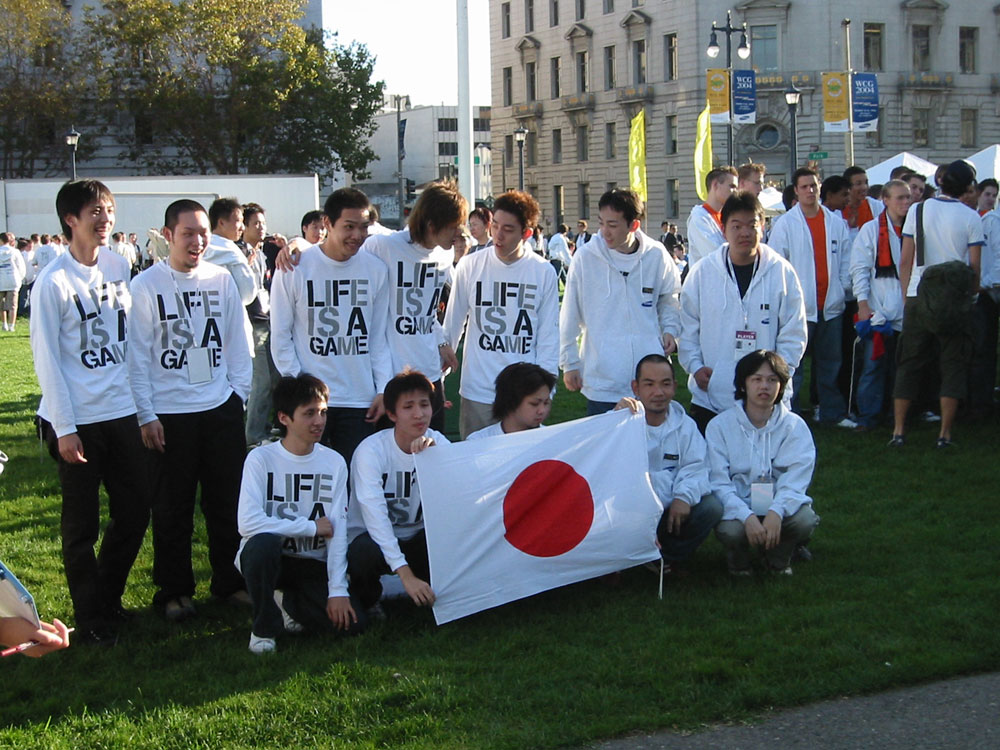 | 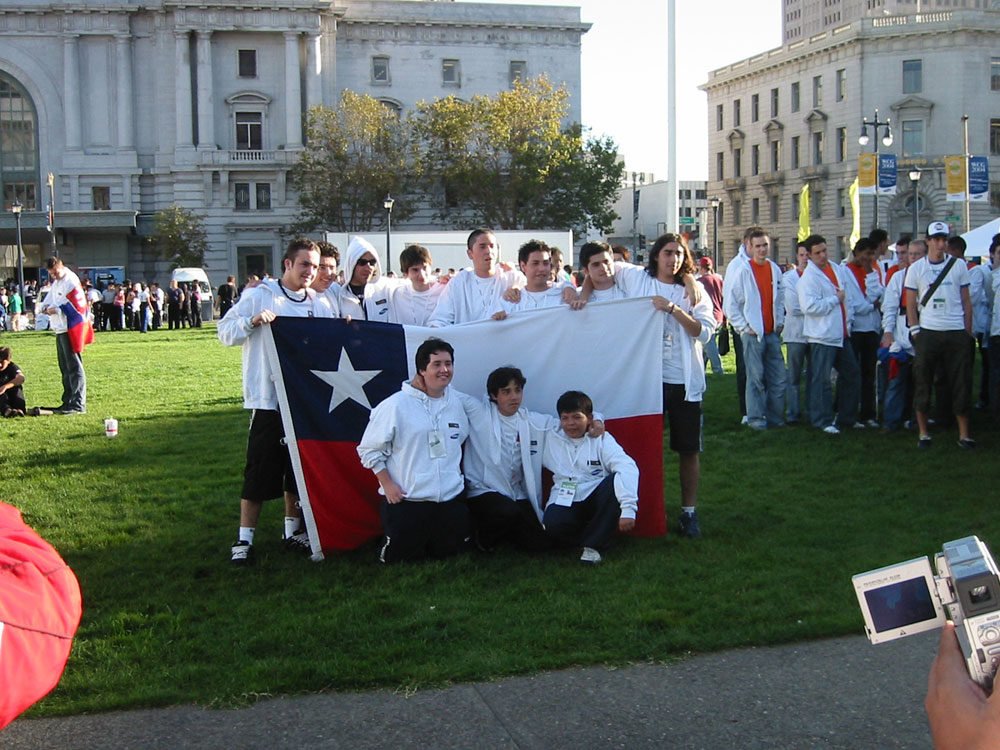 | 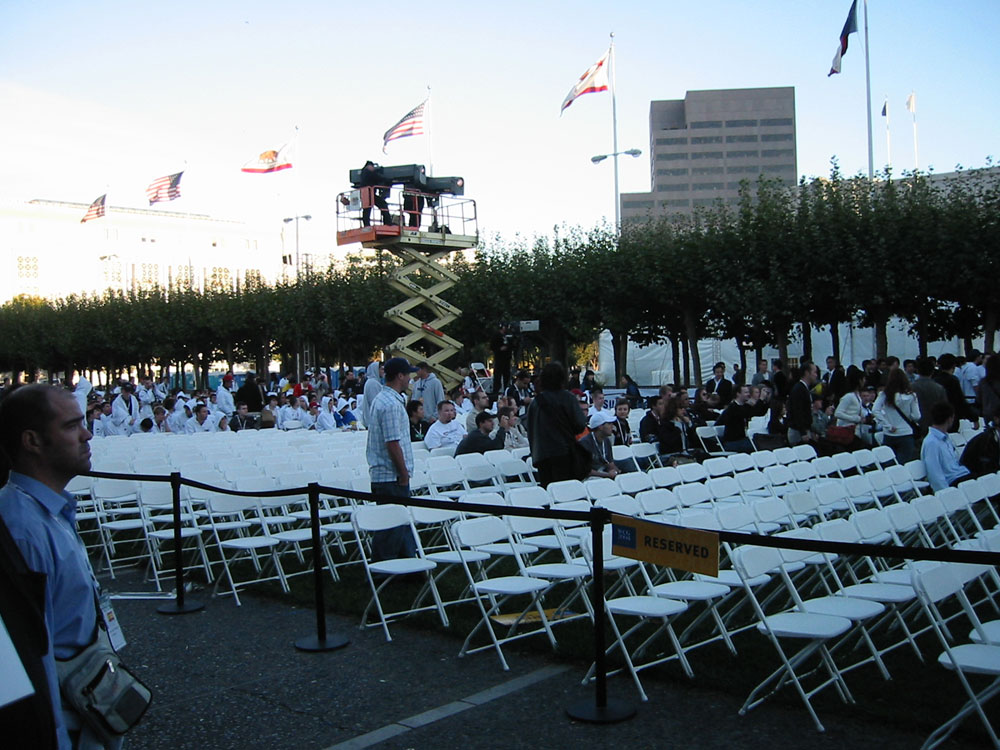 |
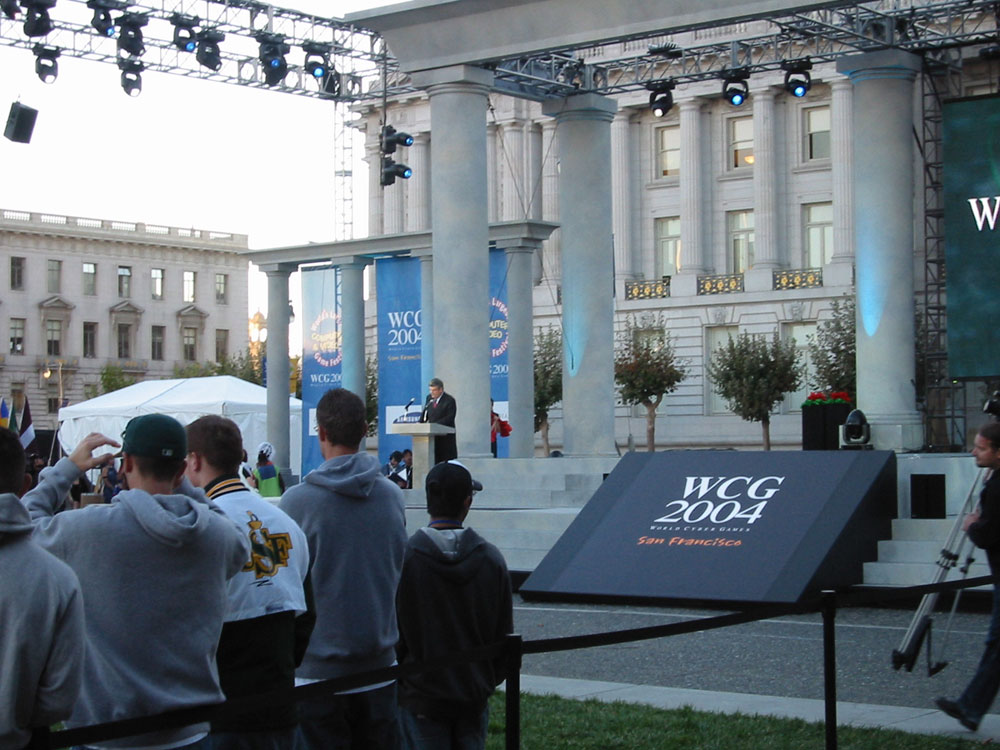 | 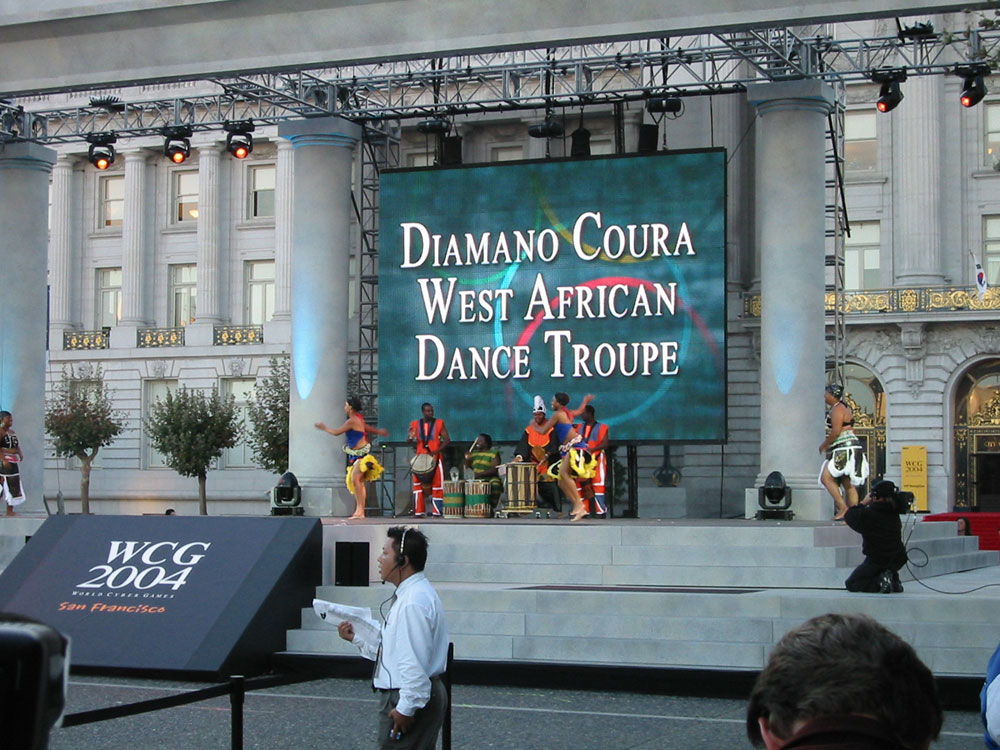 | 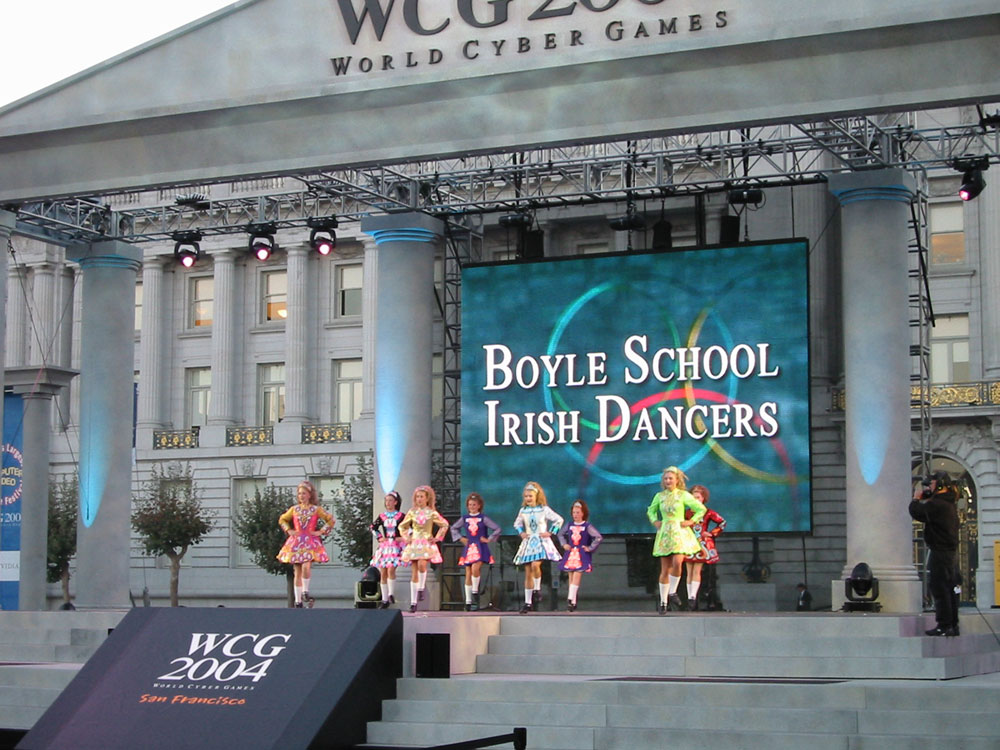 |
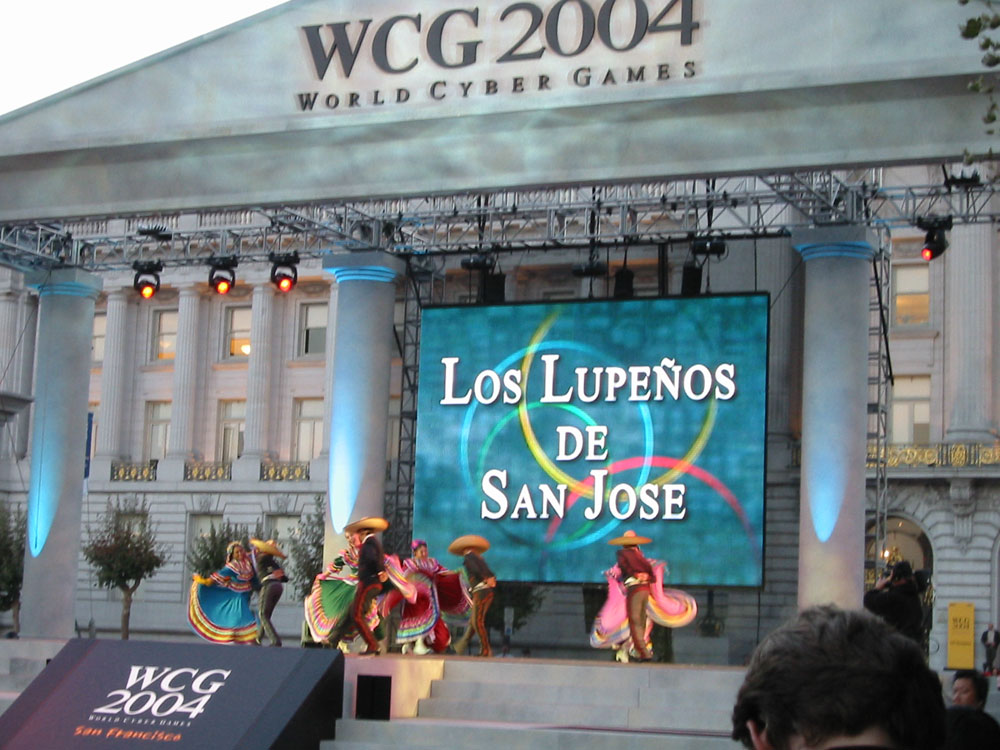 | 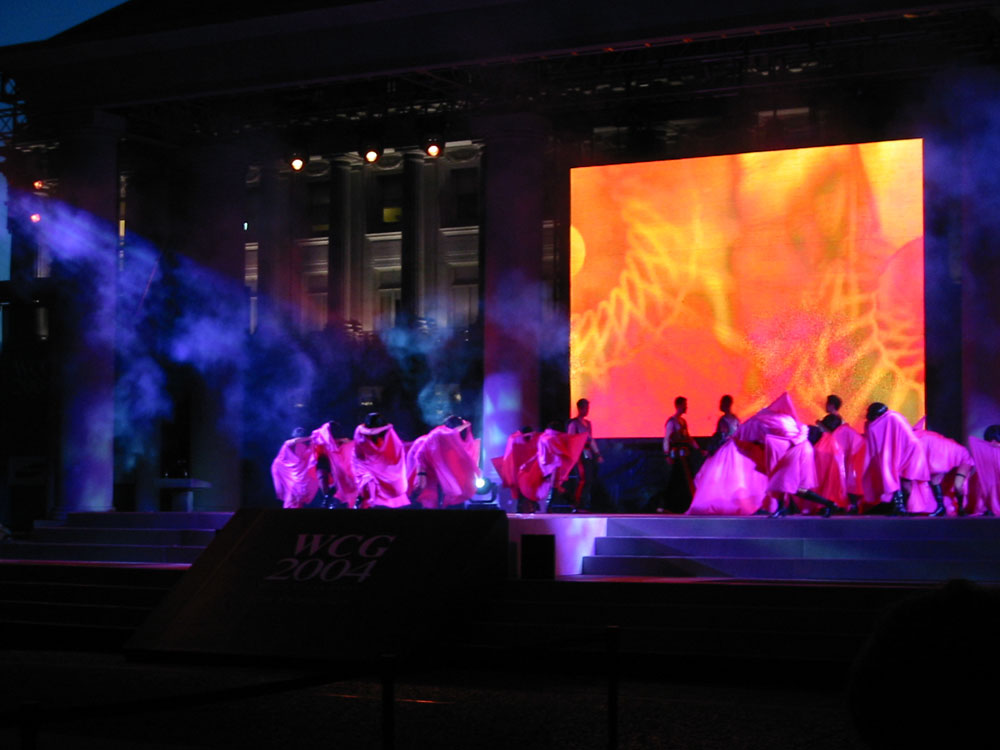 | 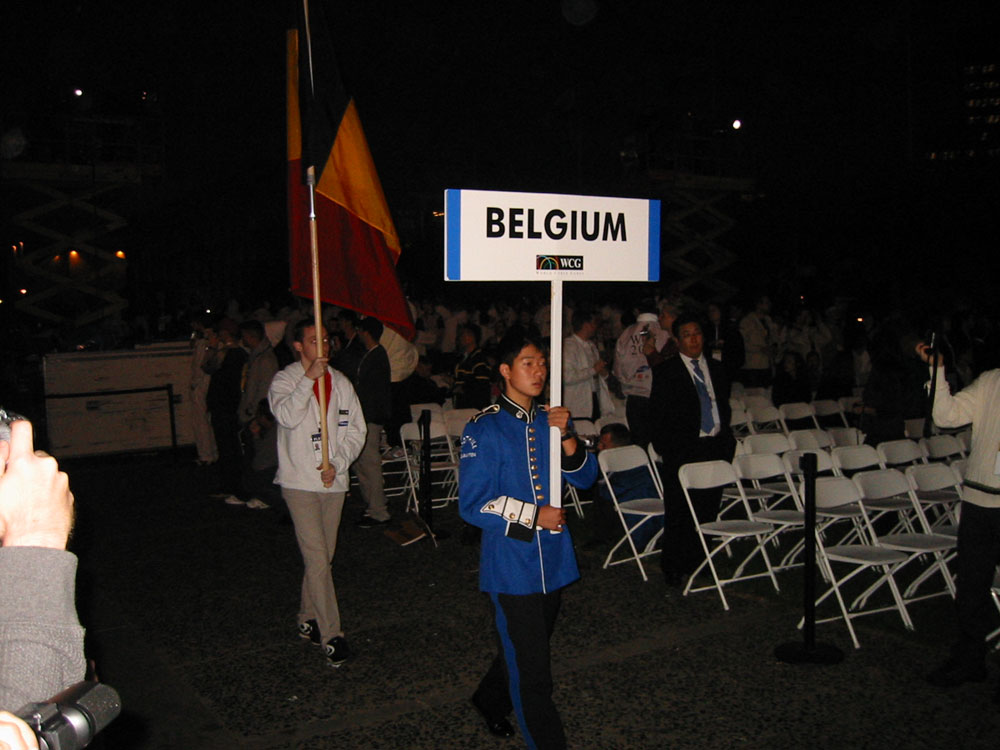 |
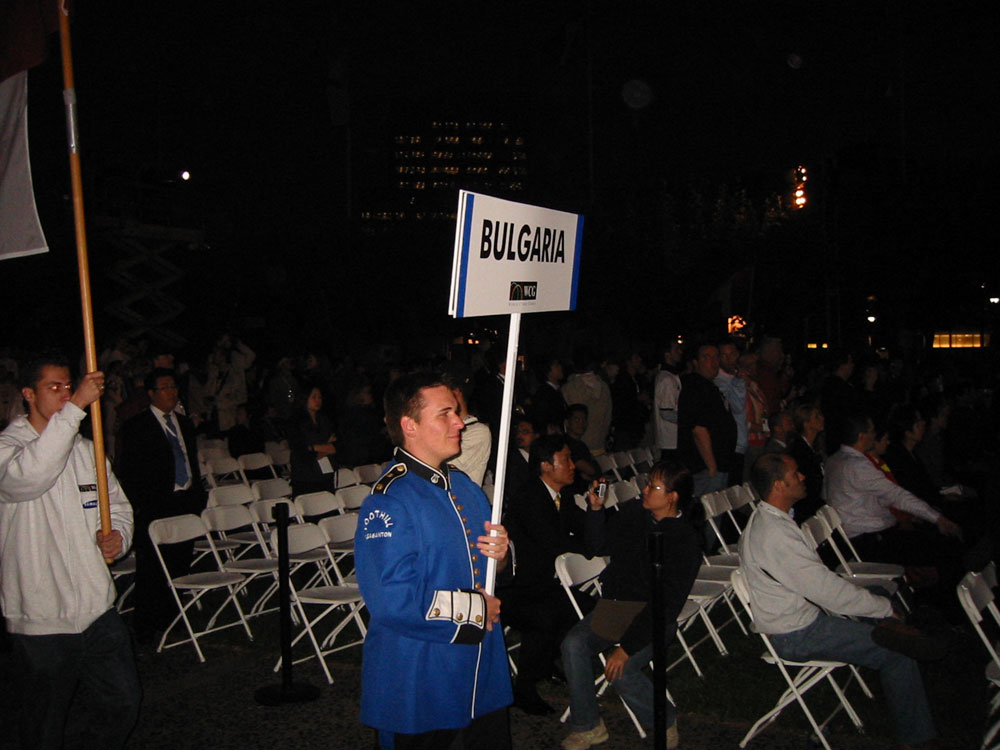 | 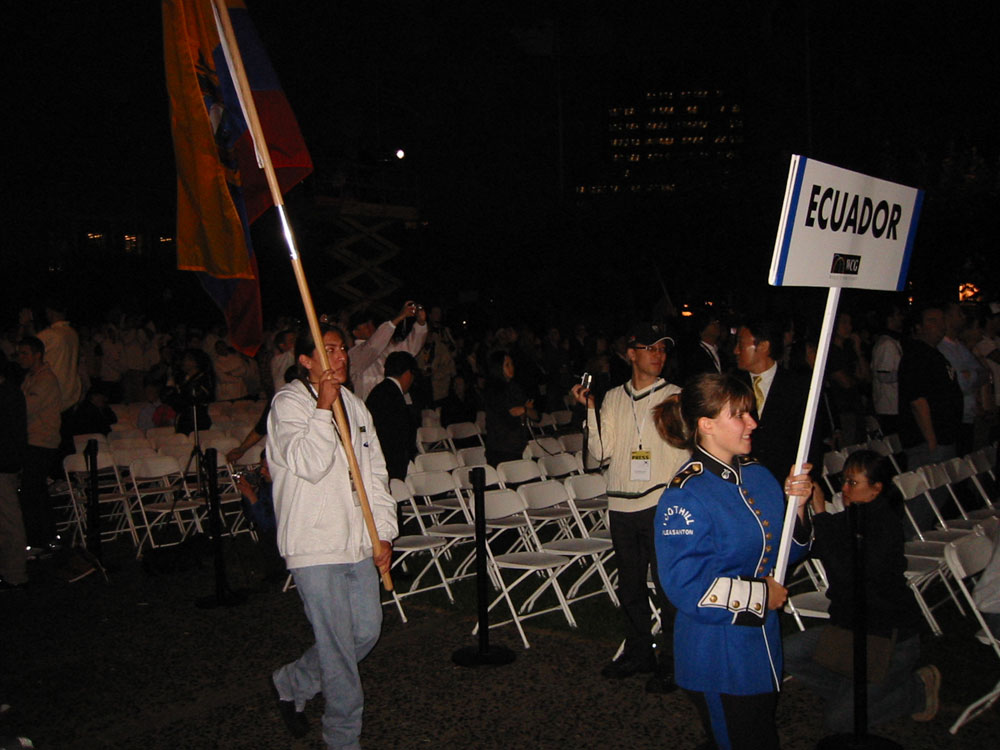 | 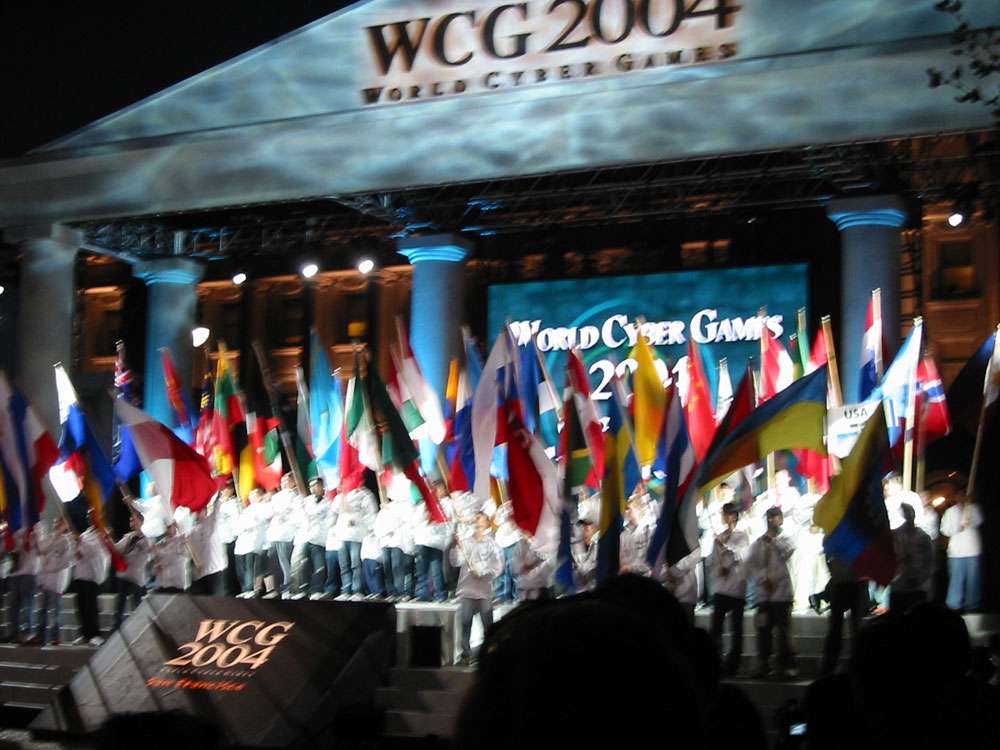 |
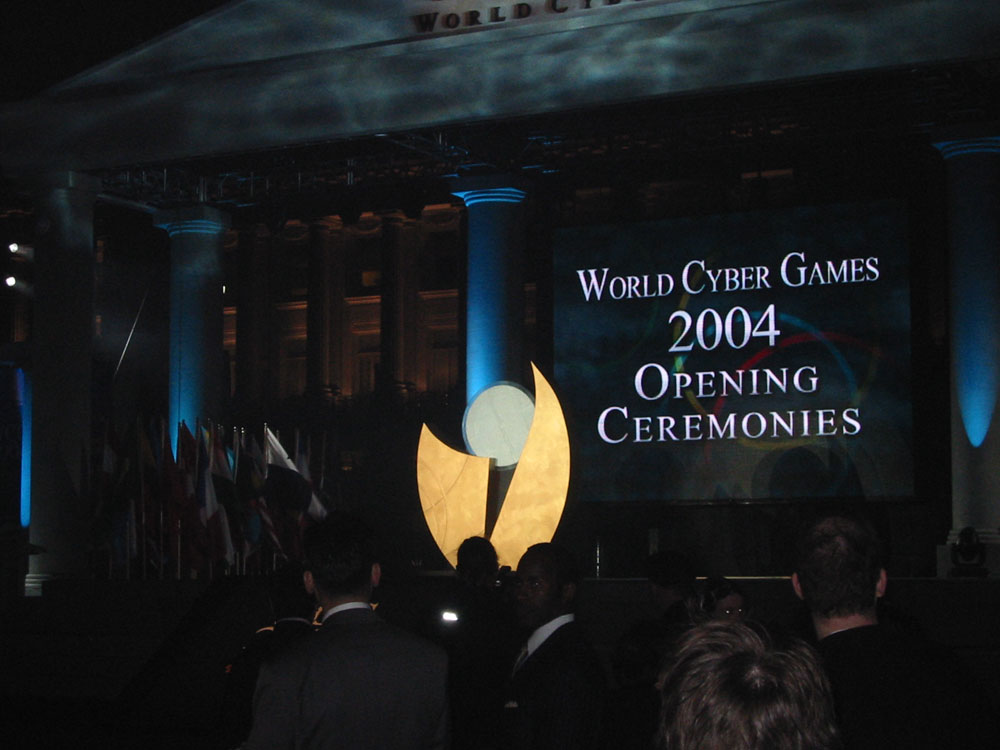 | 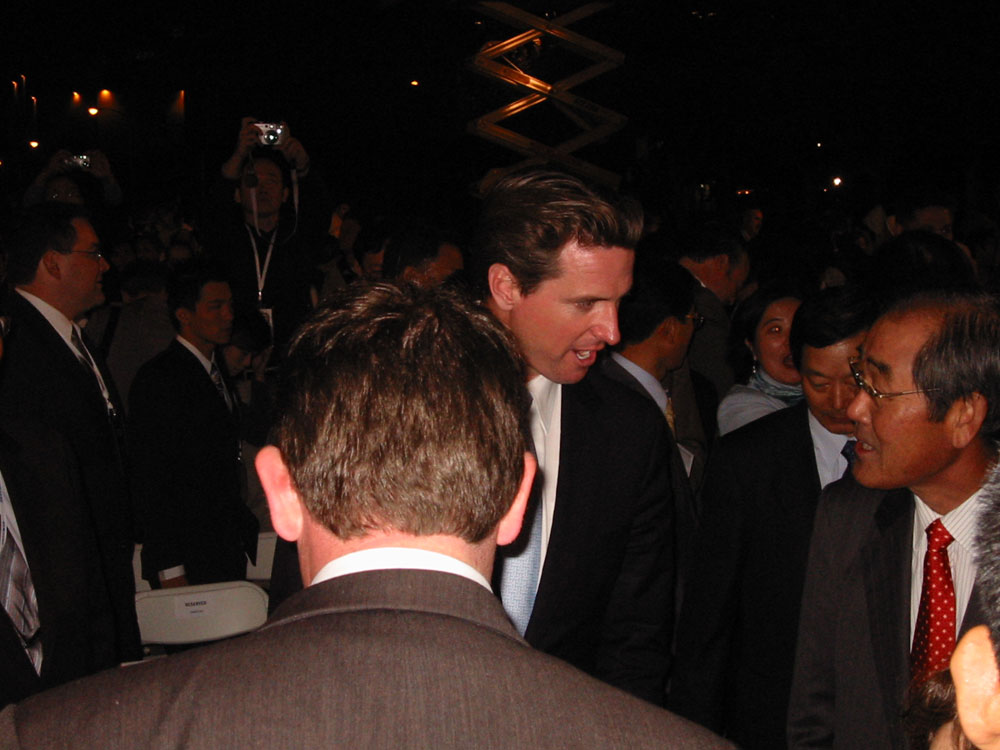 |
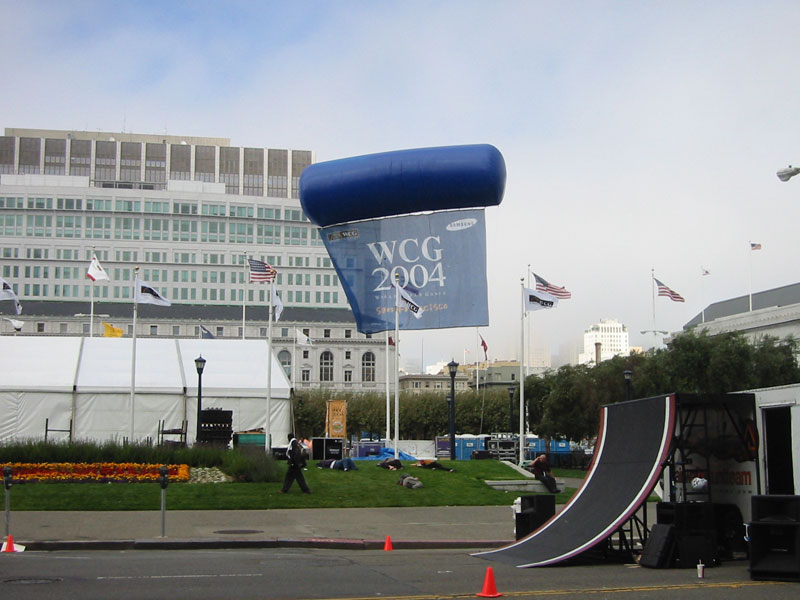 | 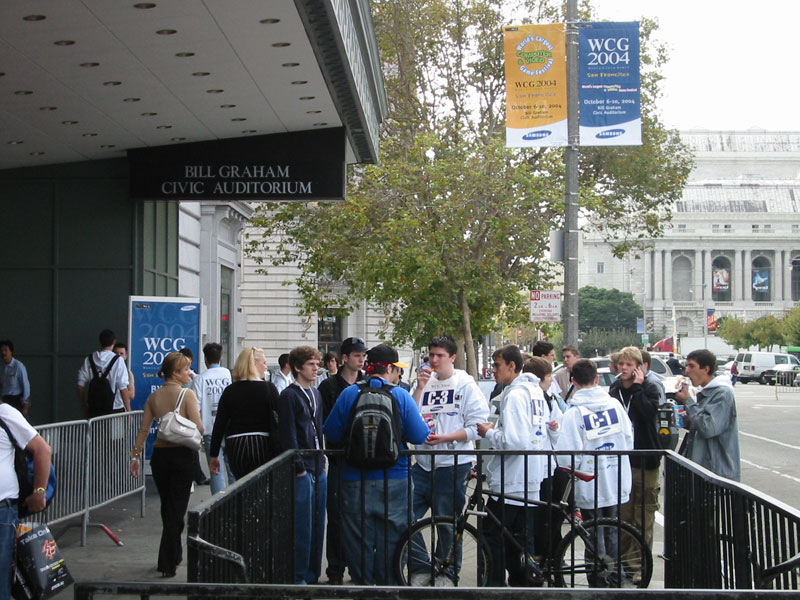 | 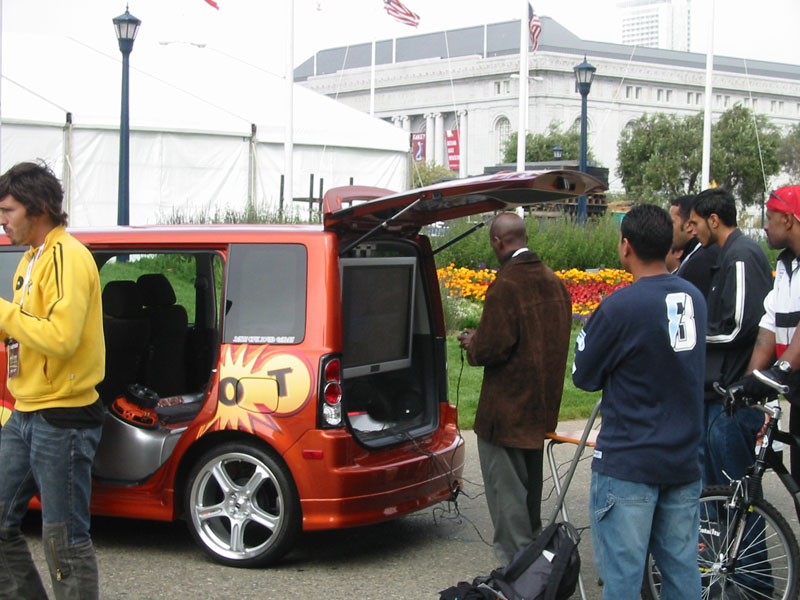 |
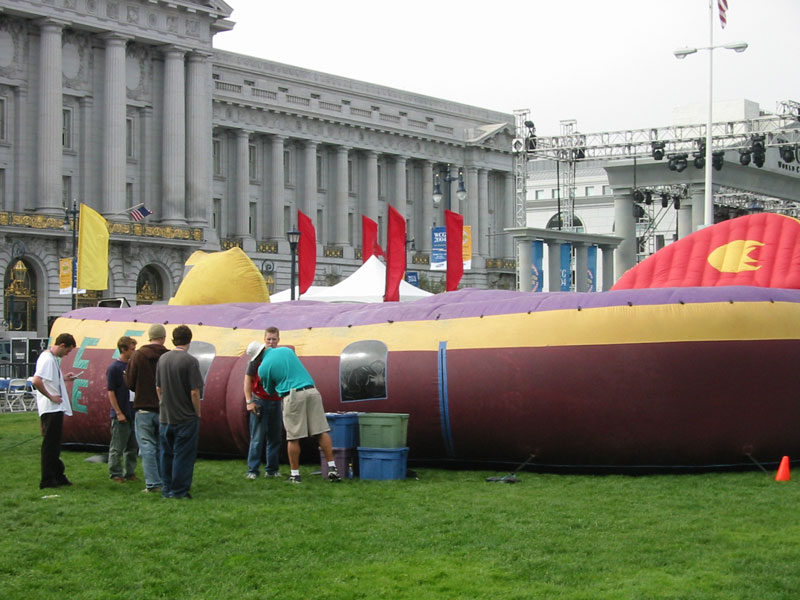 | 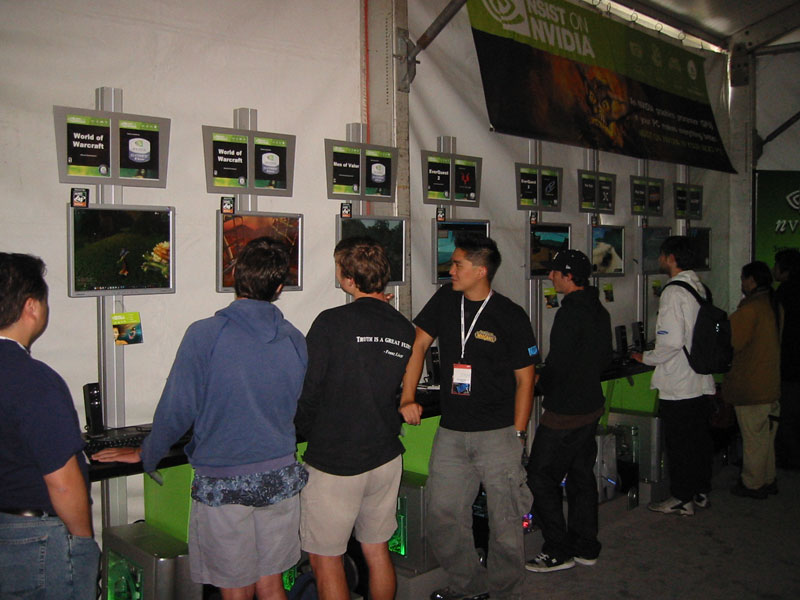 | 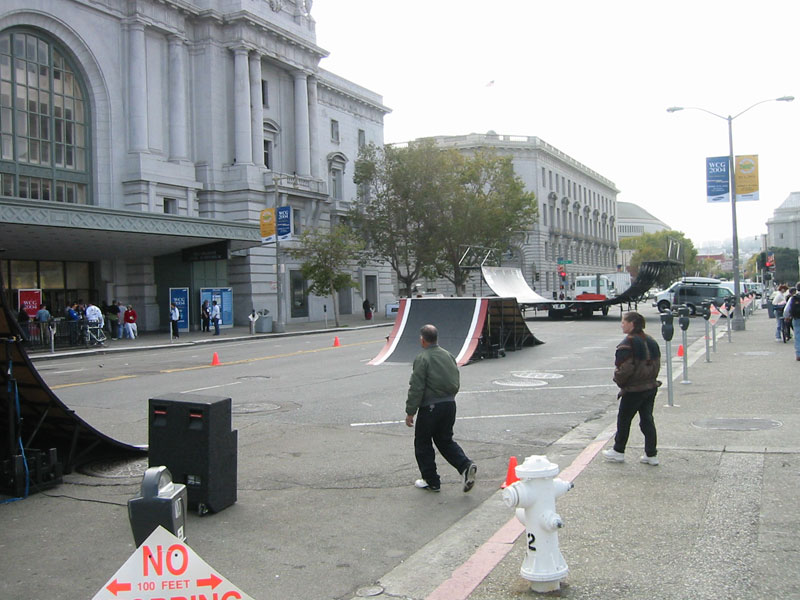 |
 |  |  |
 |  |  |
 |  |  |
 |  |  |
 |  |  |
The Halo medalists.
Gold
Matthew Leto
UNITED STATES
Silver
Nelson Triana
CANADA
Bronze
Dave Walsh
UNITED STATES
The UT 2004 medalists.
Gold
Laurens Pluymaekers
NETHERLANDS
Silver
Maurice Englehardt
GERMANY
Bronze
Roman Verenko
UKRAINE
The Project Gotham 2 medalists.
Gold
Arthur Vankan
NETHERLANDS
Silver
Juergen Unger
AUSTRIA
Bronze
Max Haverkamp Begemann
NETHERLANDS
The NFS: Underground medalists.
Gold
Niklas Timmermann
GERMANY
Silver
Yoo Myung-Chun
KOREA
Bronze
Andre Luiz Coliado de Macedo
BRAZIL
The Counter-Strike medalists.
Gold
Team3D
UNITED STATES
Silver
Titans
DENMARK
Bronze
MaveN
KOREA
The first map was de_train, with Team3D starting off as terrorists and the Titans as the counterterrorists. It looked as though the Danish team might win the all-important pistol round after an amazing triple kill with a grenade by the Titans' "drally." But 3D's "Miller" saved the day with some slick deagle kills. The Americans took the momentum from that round, racing out to an 8-1 lead and then finishing the map with a dominating 13-4 victory.
Team3D stormed to a commanding 11-1 lead after playing as the counterterrorists on the second map, de_cbble. The momentum was all on their side, as they merely had to win two rounds as terrorists on de_cbble to take home the gold. The Titans made a game of it, however, forcing overtime by holding Team3D to just one round in the second part of the de_cbble round.
The overtime rounds continued the frustration for Team3D, as they seized early momentum in each round, only to let it slip away and allow the Danish team to tie and force another overtime round. The crowd of hundreds that packed into the conference hall to witness the match oohed and aahed at the spectacle, thrilled with the back and forth shifting of momentum, punctuated by amazing shots from players on both sides. The two teams probed each other throughout their encounter on de_cbble, using different strategies ranging from full-on rushes to crafty feints and flanking maneuvers.
In the end, Team3D prevailed on the final round of the third overtime, finishing out their surprising run to the gold medal in Counter-Strike.
The Warcraft III medalists.
Gold
Manuel Schenkhuizen
NETHERLANDS
Silver
Hwang Tae-Min
KOREA
Bronze
Merlo Yoan
FRANCE
The third and deciding round was much more dramatic, with Hwang appearing as though he was going to overrun Schenkhuizen's base with a massive attack, supported by offensive watch towers just outside the base. Despite an apparent disadvantage in manpower, the Dutchman was able to fend off the attack without losing a hero, and from there the momentum shifted. Schenkhuizen established an expansion first, and simultaneously kept his Korean rival from picking up a second gold mine. After Hwang failed to uproot Schenkhuizen from his expansion base, the match and gold medal was all but decided in favor of the Dutchman.
The Starcraft medalists.
Gold
Jihoon Seo
KOREA
Silver
Sang-Wook Jeon
KOREA
Bronze
Christian Drechsler
BULGARIA
The FIFA 2004 medalists.
Gold
Daehan Choi
KOREA
Silver
Bruno Carrico
BRAZIL
Bronze
Daniel Rasche
GERMANY
While the WCG 2004 in San Francisco started off slowly with what seemed to be only dozens of spectators witnessing early round action, the final days' worth of events attracted hundreds more spectators, with exuberant crowds cheering on the final and semifinal matches for Warcraft III, Starcraft, and Counter-Strike. Equally important was how the tournament officials managed to keep the matches running on time for the most part, which is no mean feat for an event of this scale.
 |  |  |
The closing ceremony of the World Cyber Games 2004 was a more concise affair than the pomp-laden opening ceremony. After a brief performance from a local chorus, the winners of each of the eight events were awarded their medals and recognized in front of a crowd of hundreds. The overall winner of the WCG 2004 was the Netherlands, whose players earned three gold medals and a bronze at the games. Korea was second with two golds, three silvers, and a bronze, with the host, the United States, in third place with two golds and a bronze.
After the entire Netherlands team was awarded a trophy for their overall performance, the ceremony concluded with brief words from San Francisco city treasurer Jose Cisneros, who then passed on the WCG flag to the Singaporean ambassador to the United States, Heng-Chee Chan. Next year's WCG finals will be held in Singapore.
 |  |  |
 |  |  |